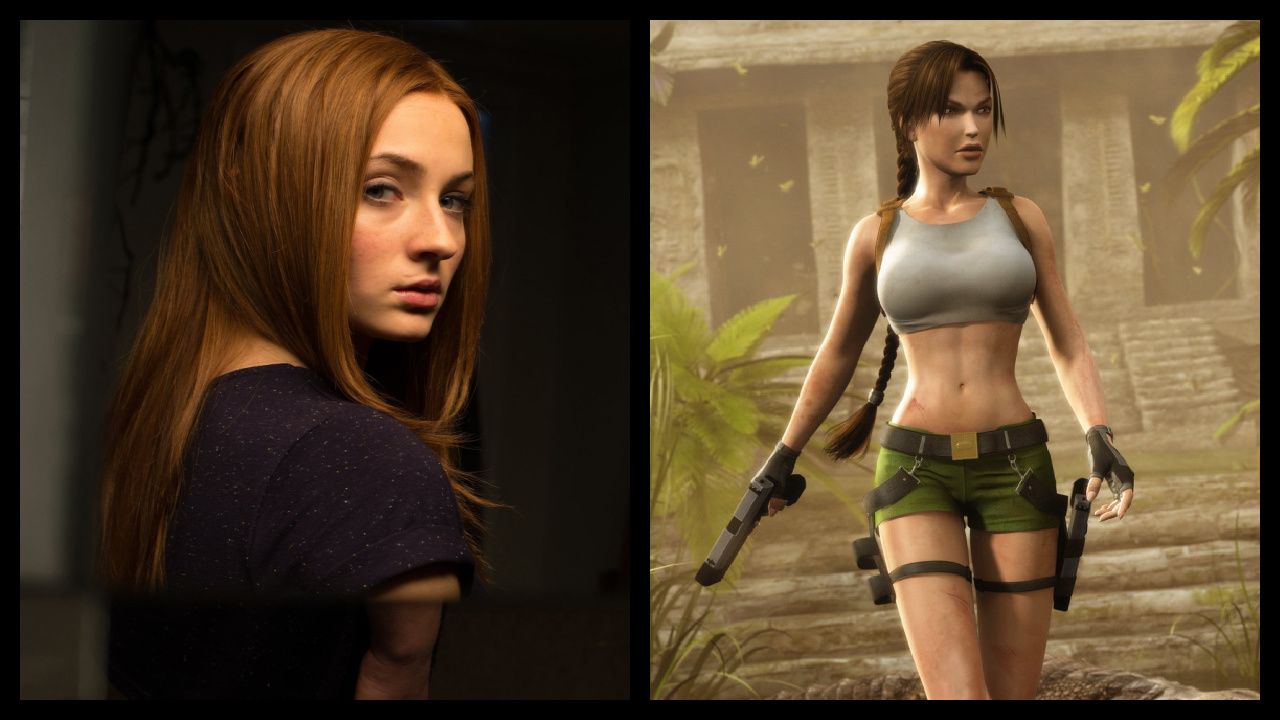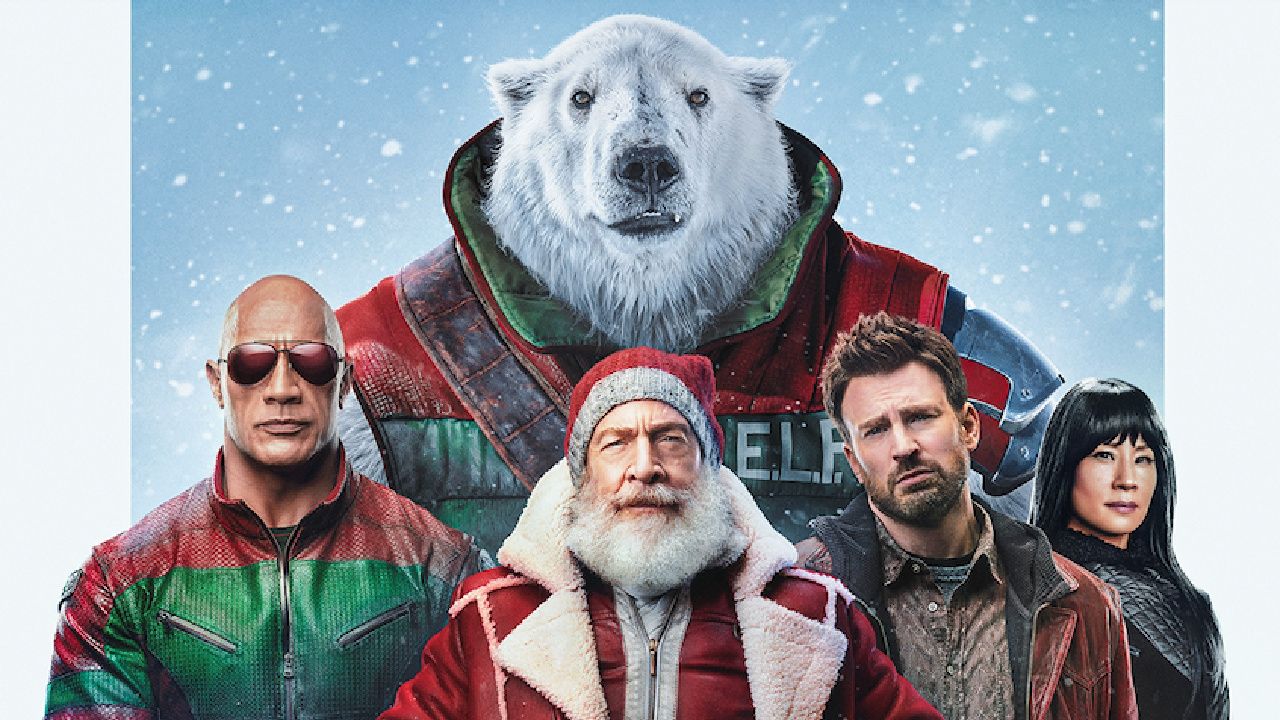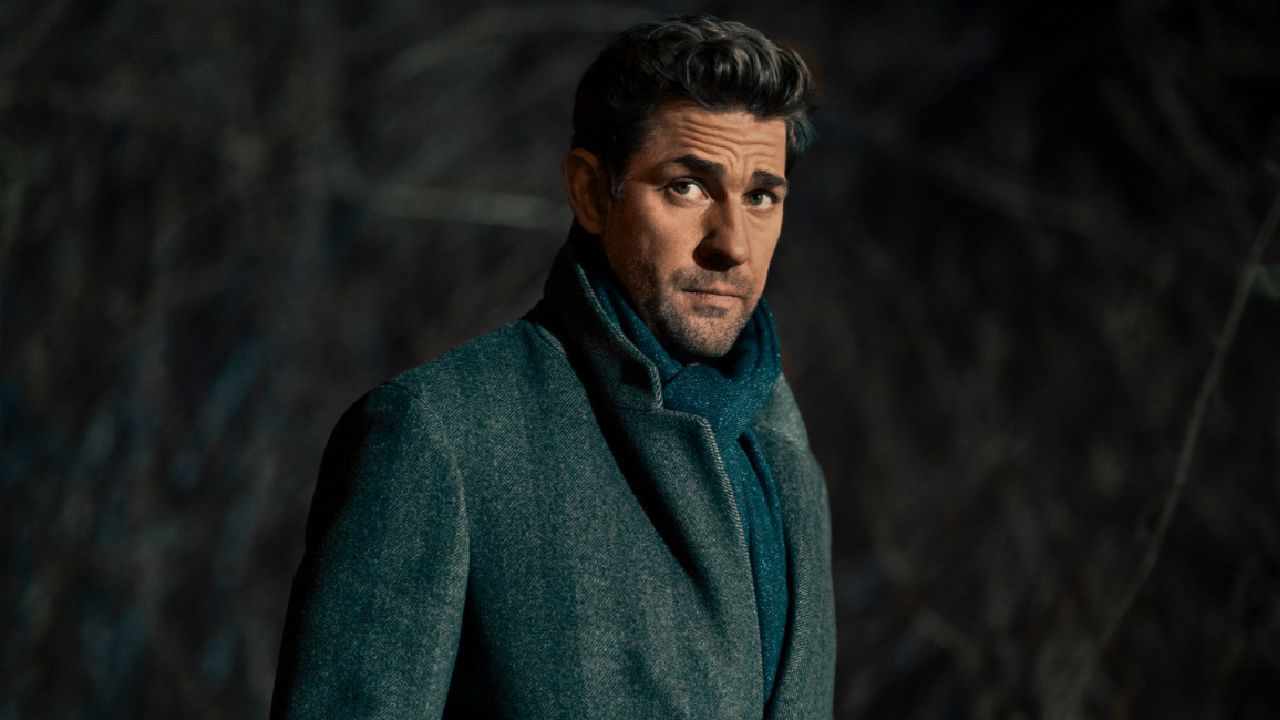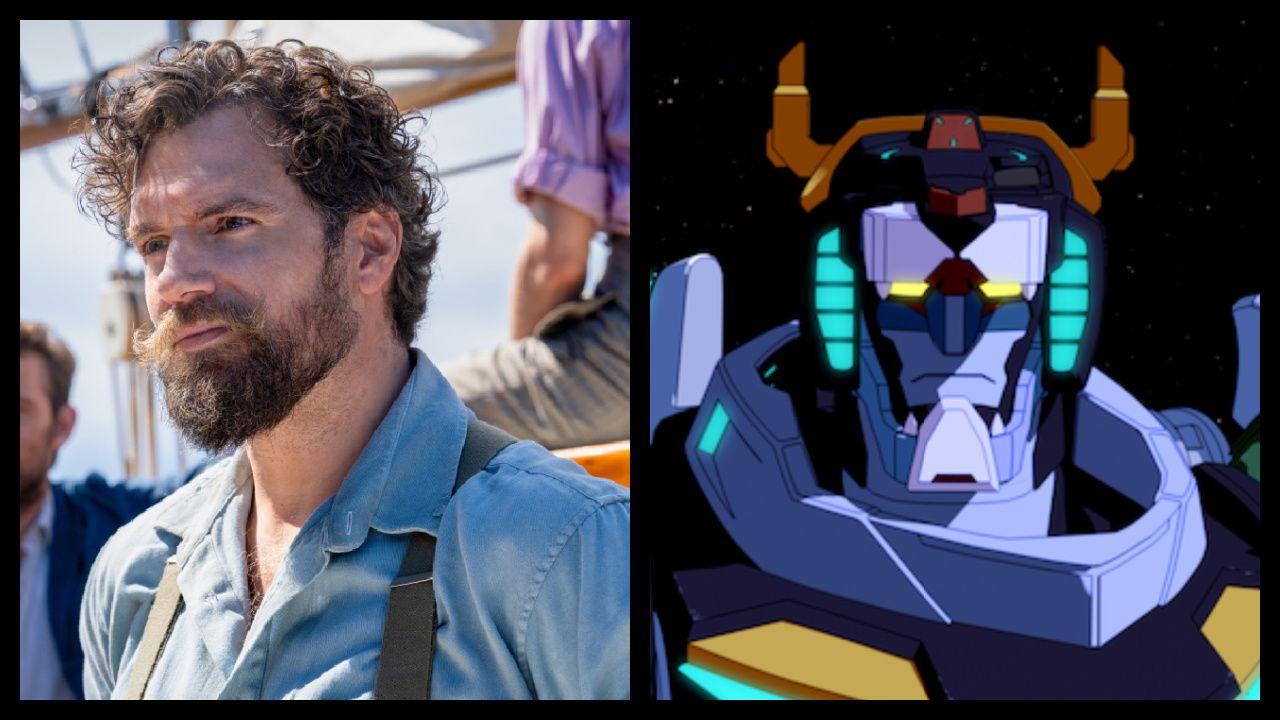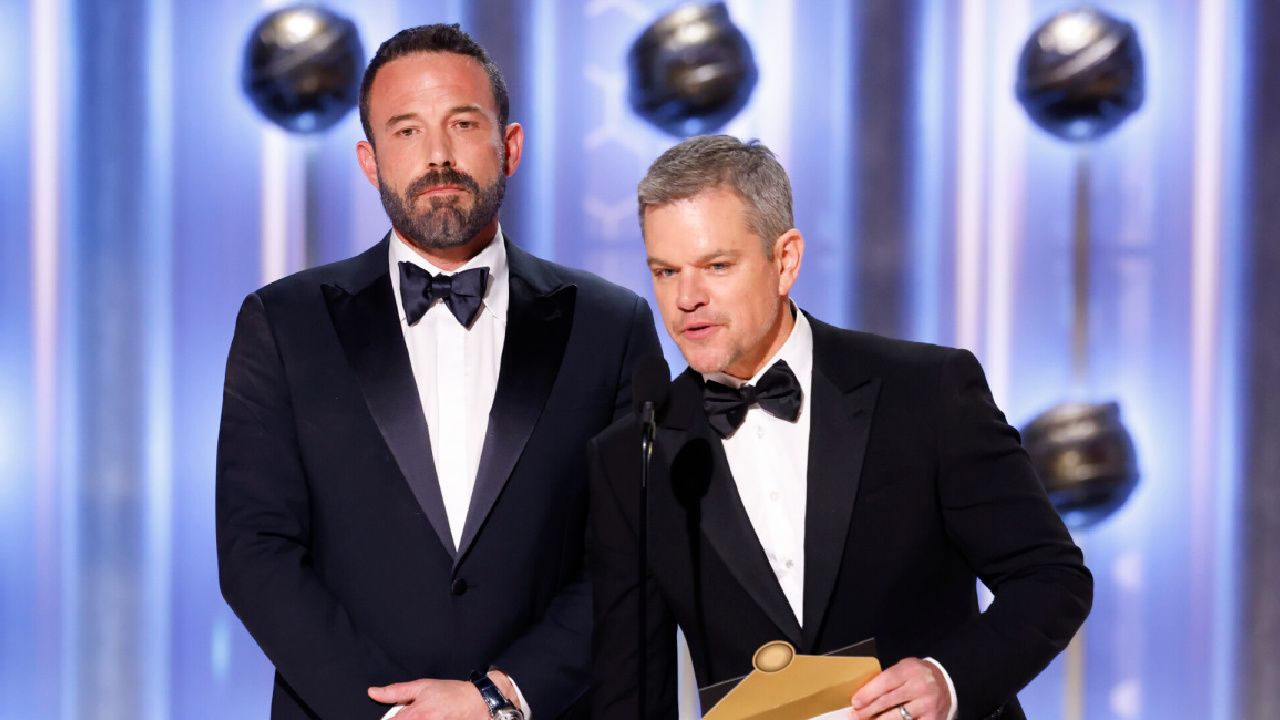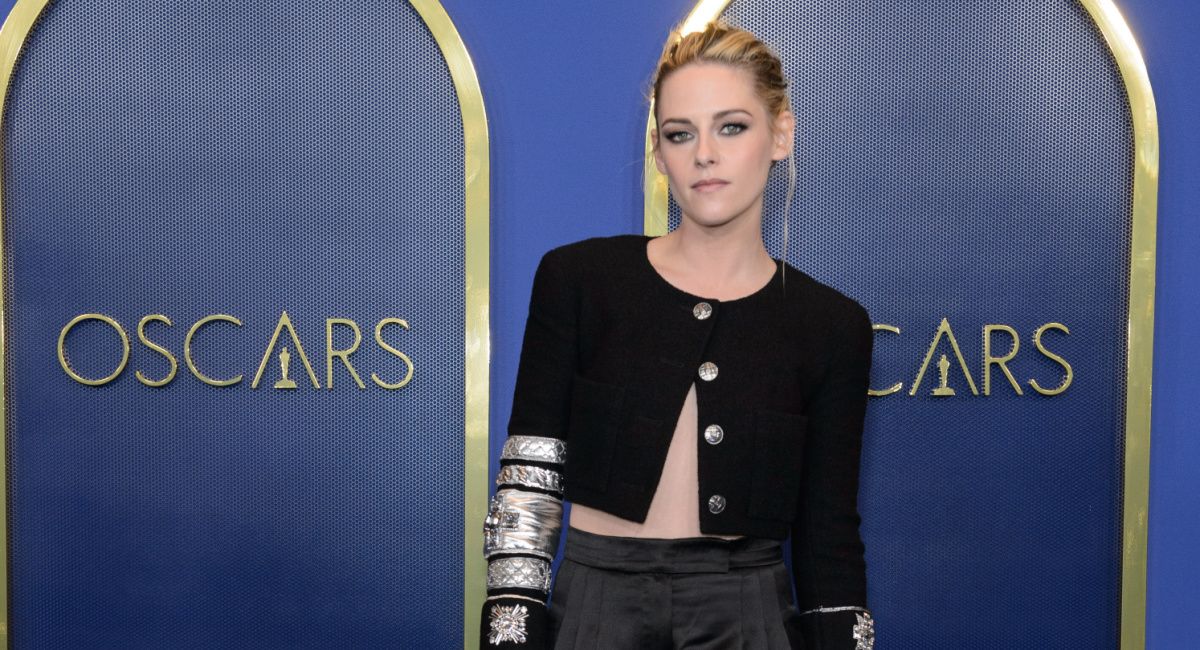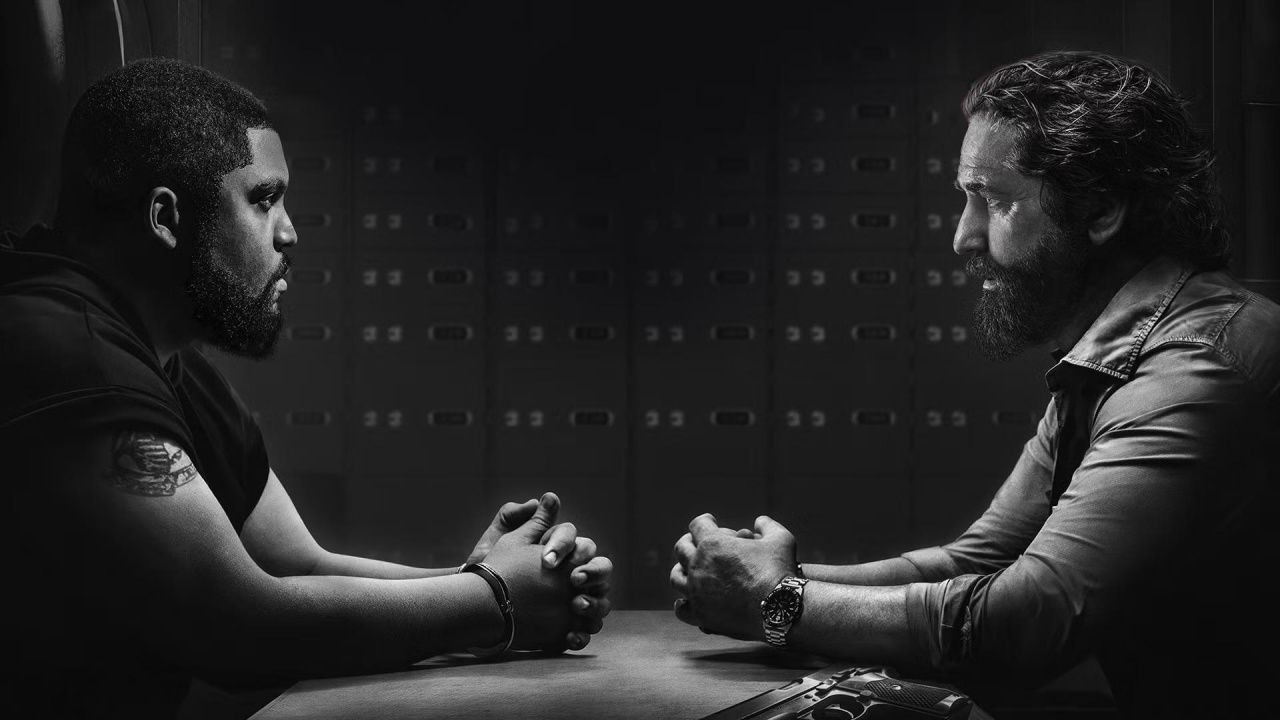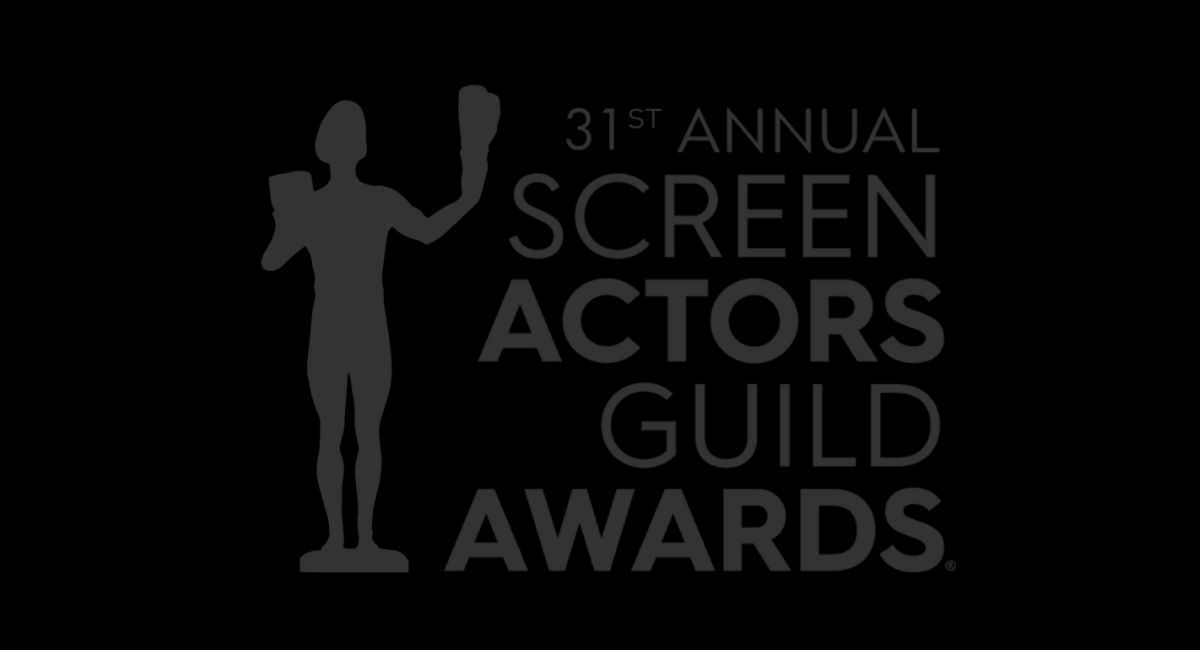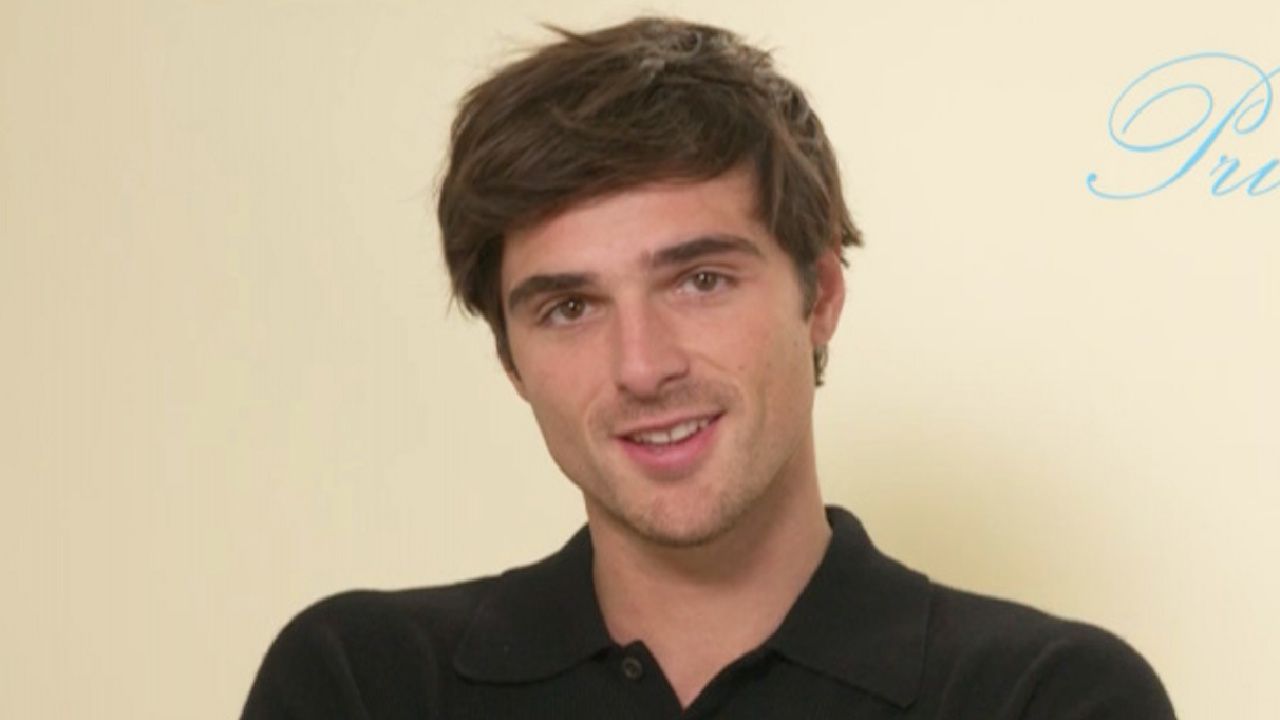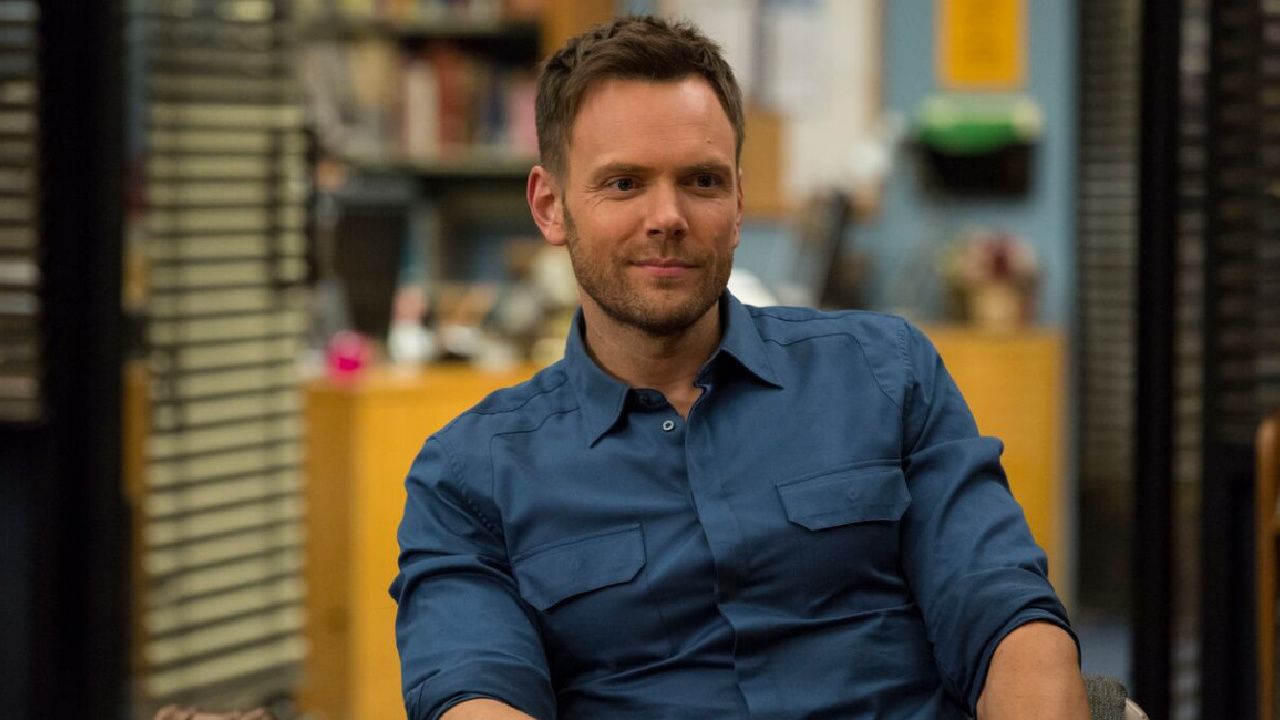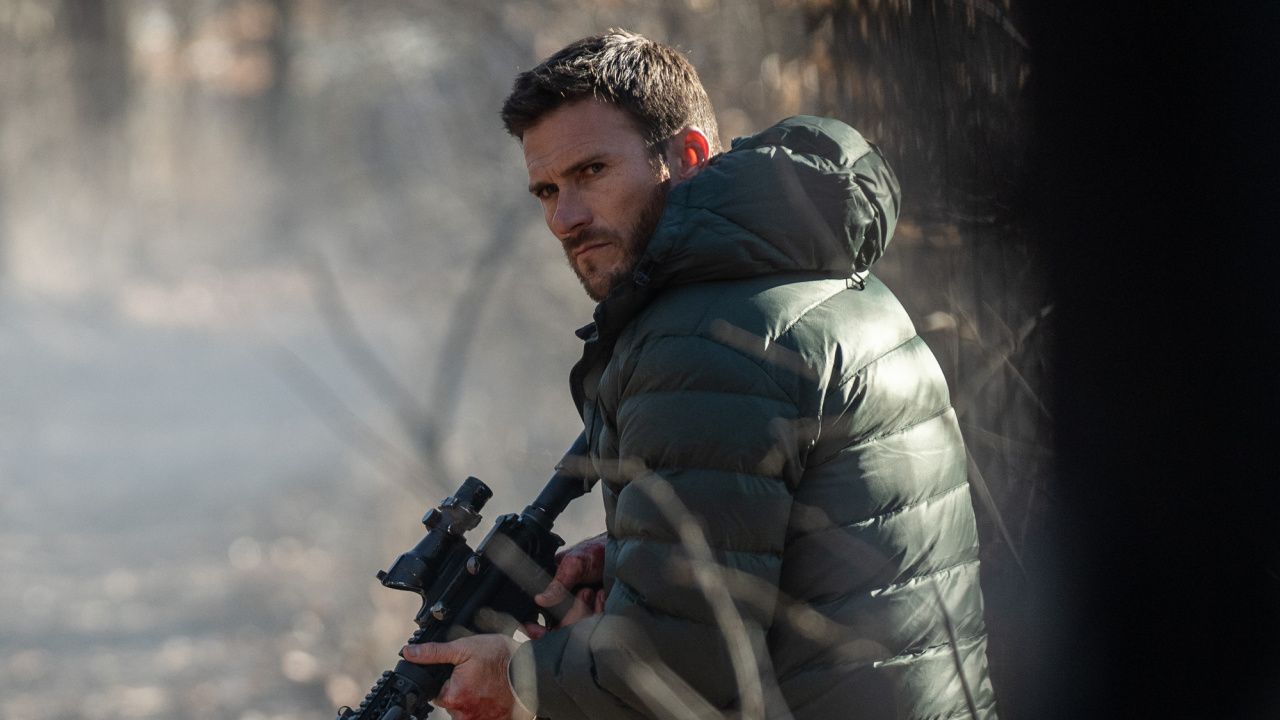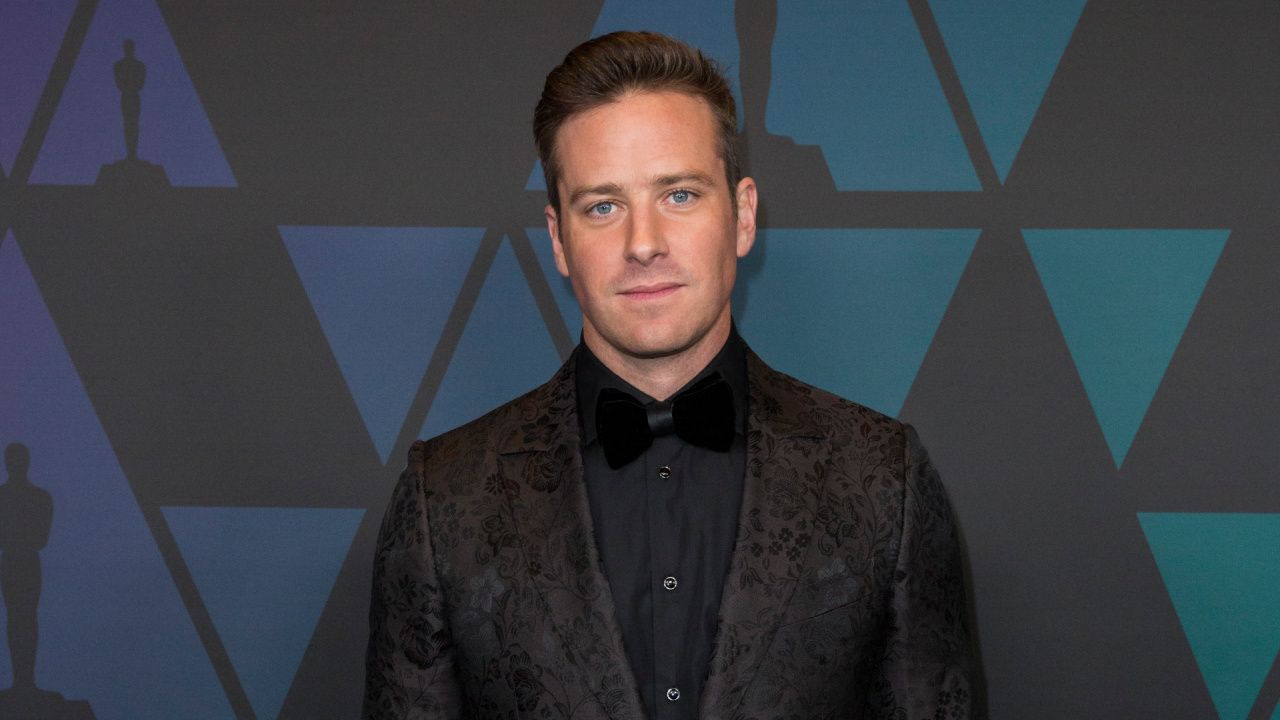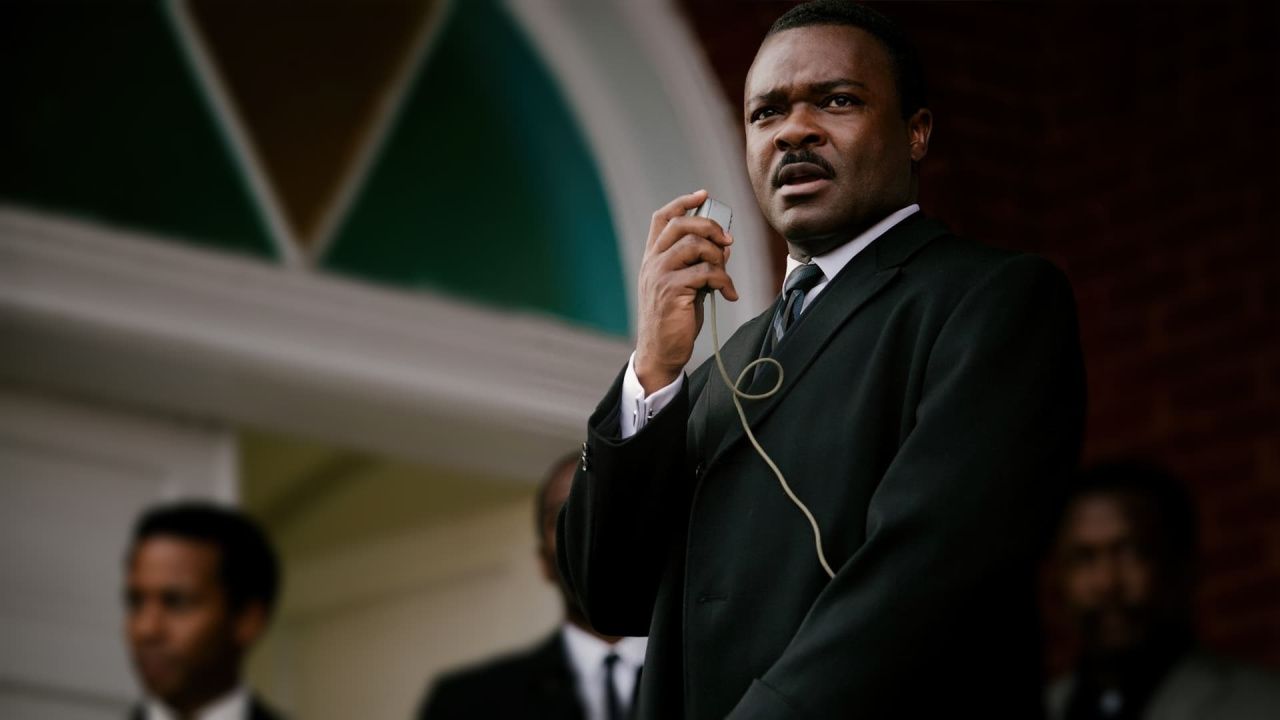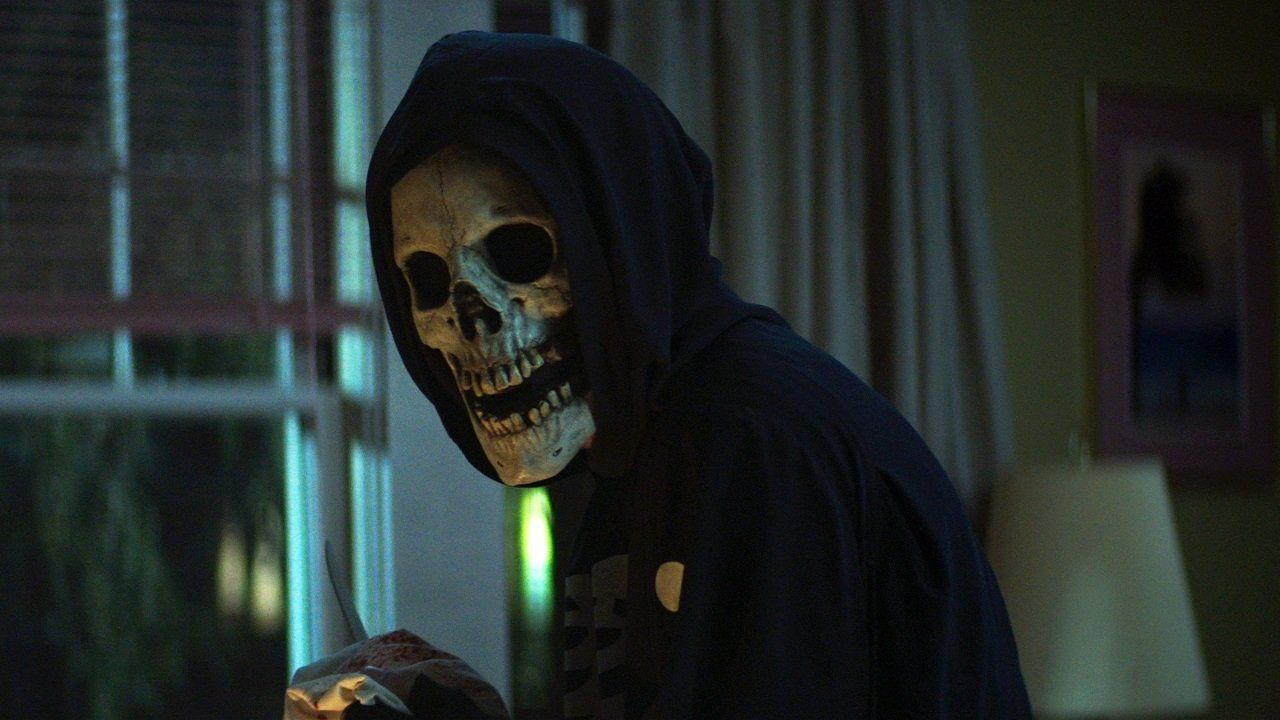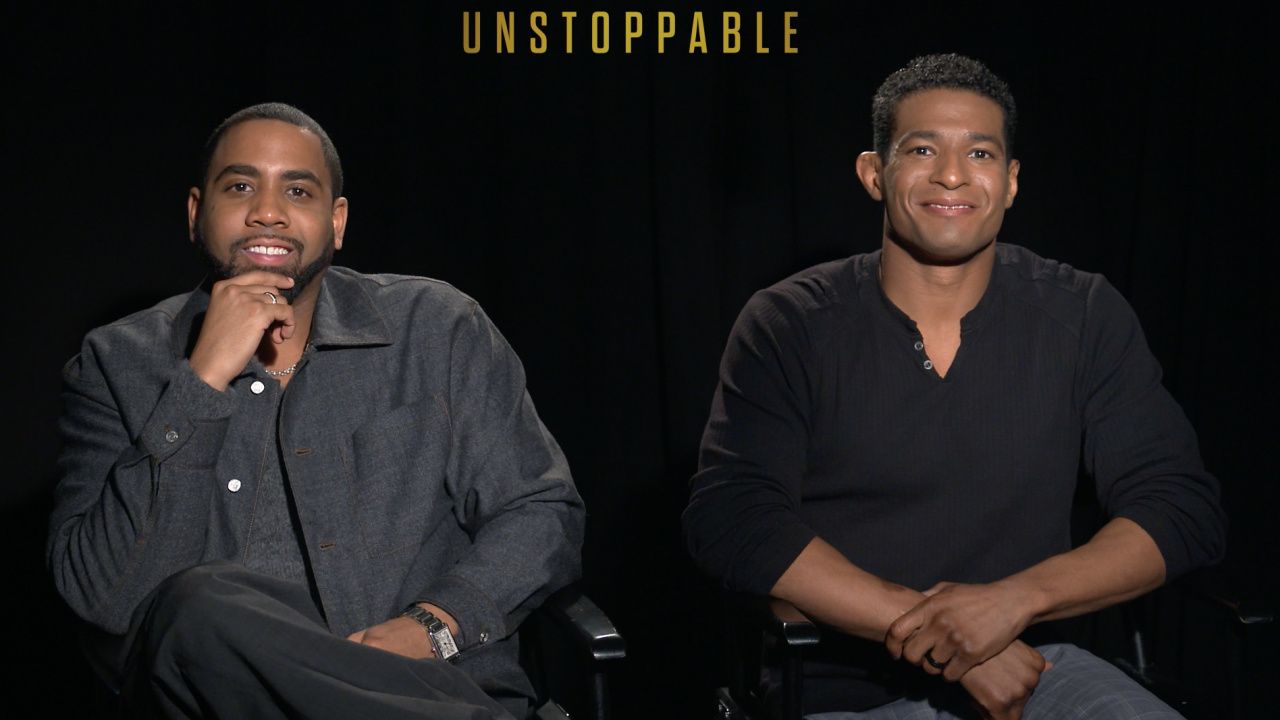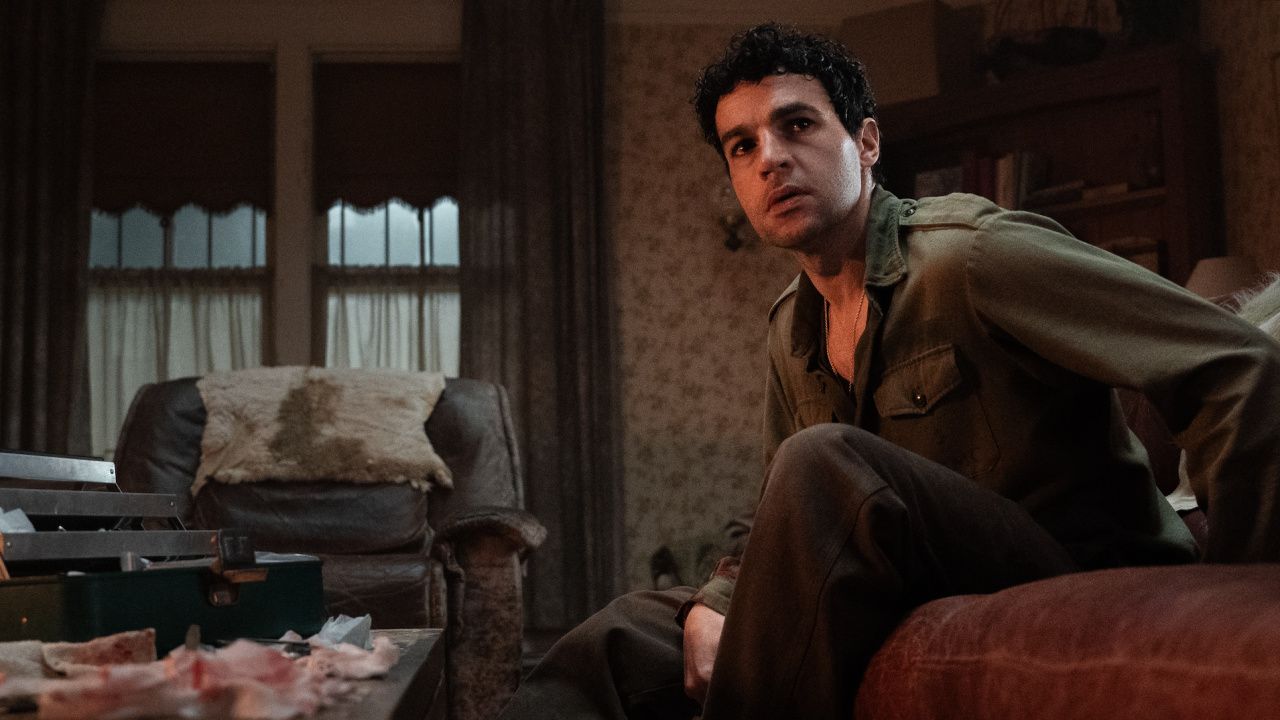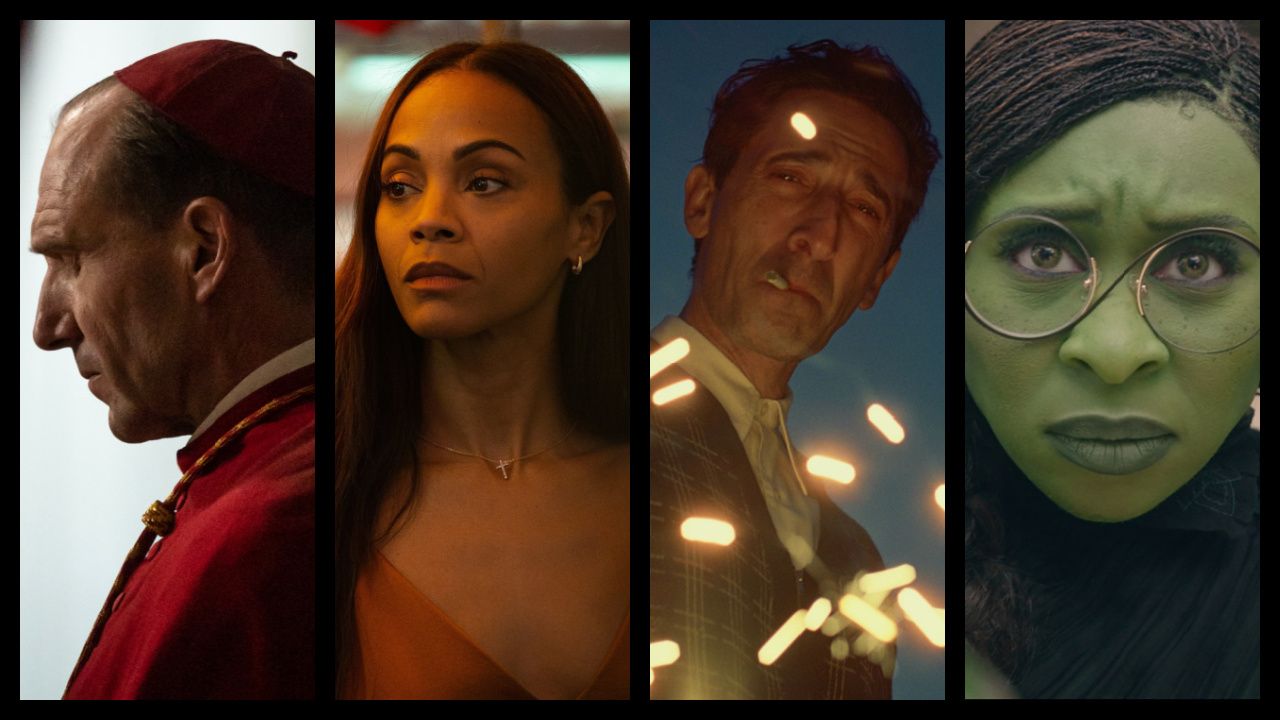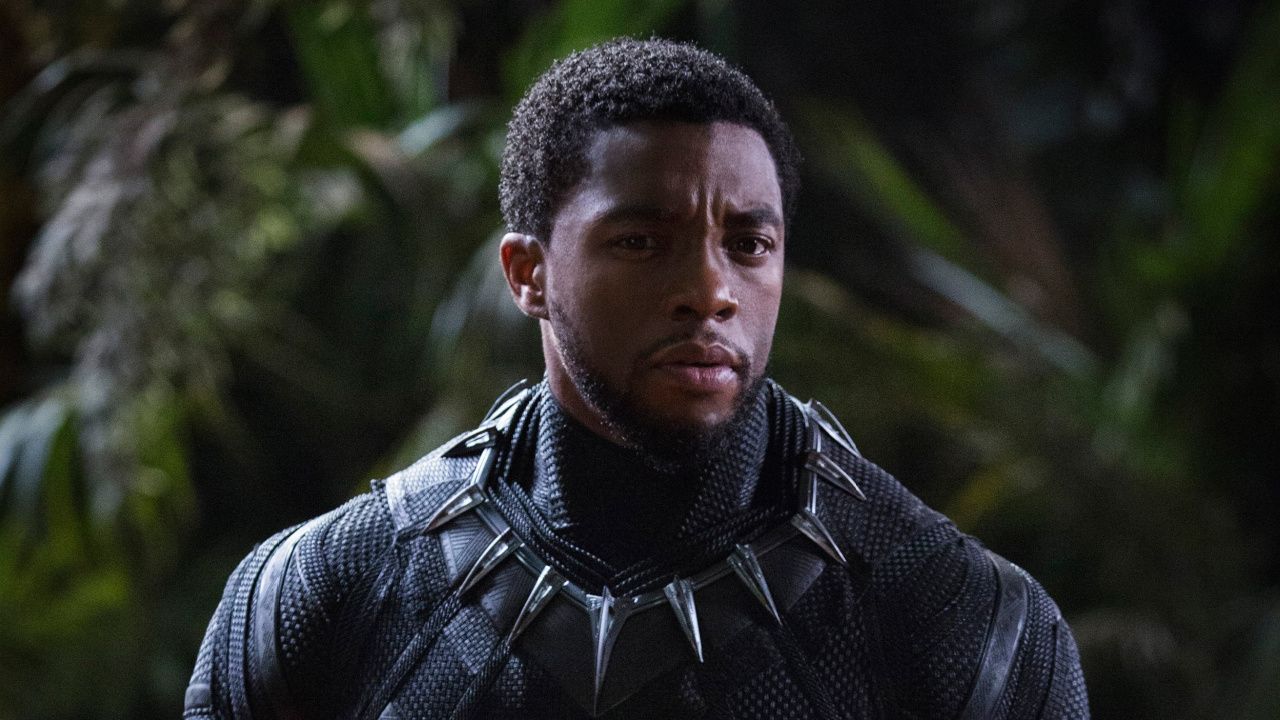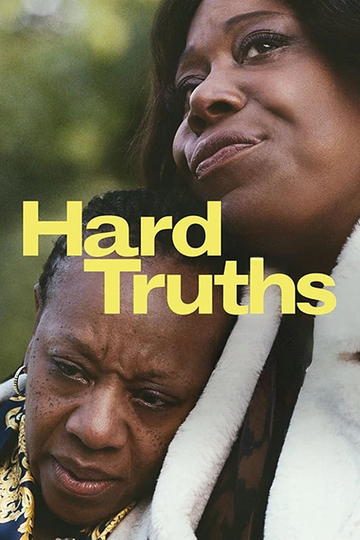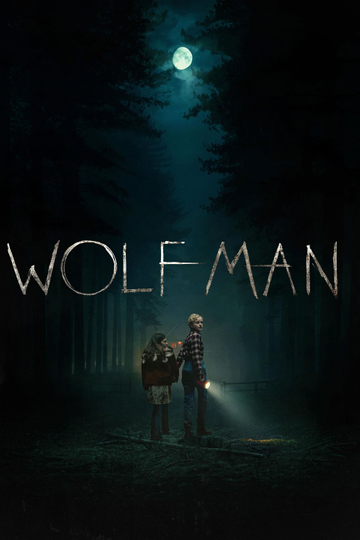Director George Clooney and Joel Edgerton Talk 'The Boys in the Boat'
Moviefone speaks with director George Clooney and Joel Edgerton about 'The Boys in the Boat.' "It's an underdog story and I love sports films," Clooney said.
Opening in theaters on December 25th is ‘The Boys in the Boat,’ which is based on the novel by author Daniel James Brown about the U.S. men’s rowing team that competed in the 1936 Summer Olympics games in Berlin, and was directed by George Clooney (‘Good Night, and Good Luck.’).
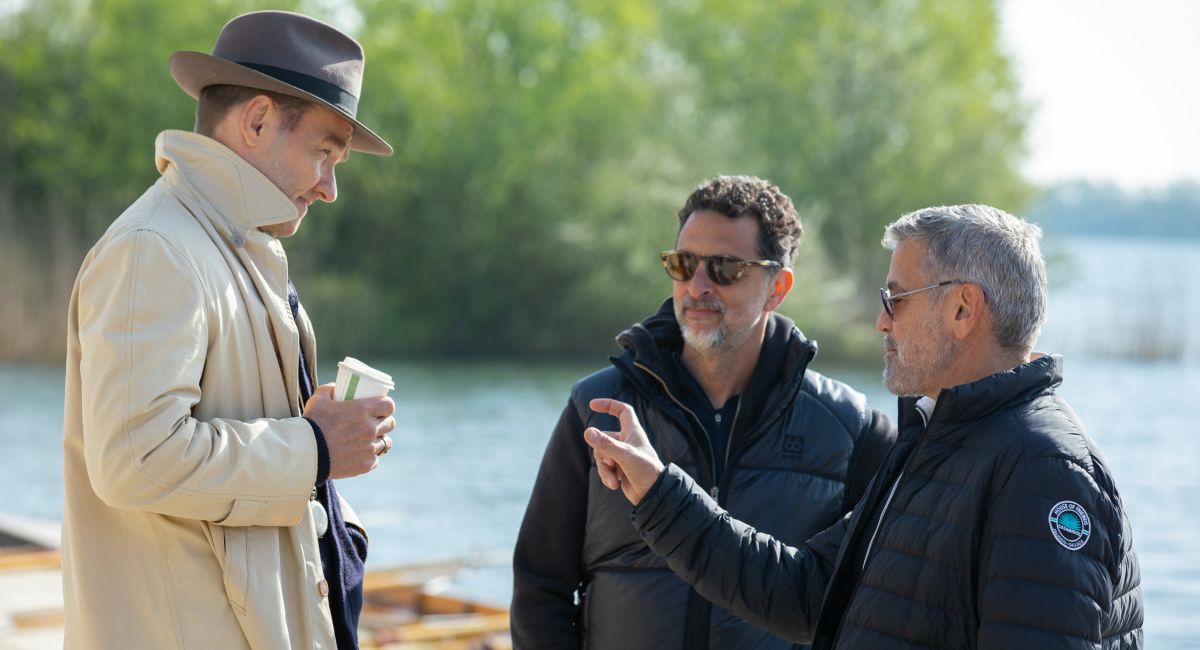
(L to R) Actor Joel Edgerton, producer Grant Heslov and director George Clooney on the set of their film'The Boys in the Boat,' an Amazon MGM Studios film. Photo credit: Laurie Sparham. © 2023 Metro-Goldwyn-Mayer Pictures Inc. All Rights Reserved.
Moviefone recently had the pleasure of sitting down in-person with director George Clooney and actor Joel Edgerton to talk about their work on ‘The Boys in the Boat.’
They discussed the new movie, why Clooney wanted to adapt the book and the themes he wanted to explore, Edgerton’s approach to his character, the challenges of shooting the rowing sequences, what Edgerton learned about filmmaking from watching Clooney direct, and what Clooney was looking from the young actors he cast for the rowing team.
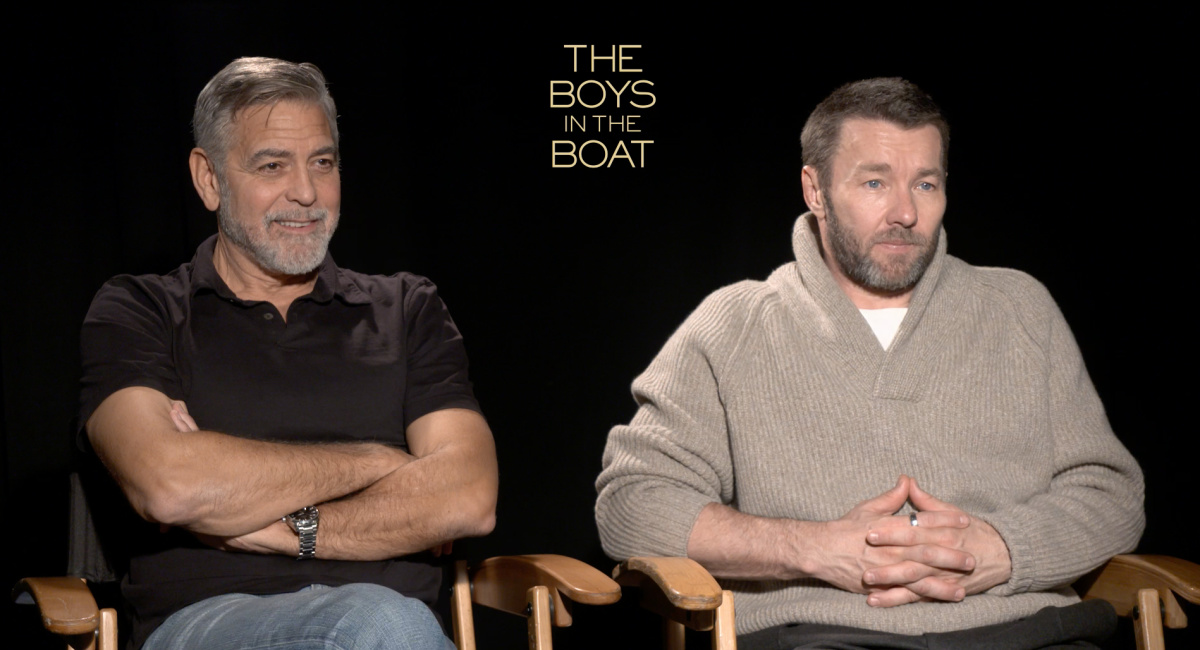
(L to R) Director George Clooney and Joel Edgerton talk 'The Boys in the Boat.'
You can read the full interview below or click on the video player above to watch our interviews with Clooney and Edgerton, as well as Callum Turner and Hadley Robinson.
Moviefone: To begin with, George, can you talk about developing this project? What intrigued you about the real story it's based on, and what were the themes you wanted to explore as a director with this movie?
George Clooney: The book was one of my favorite books. I read the book, we went after it, we didn't get it. It took a long time. We hired a terrific screenwriter named Mark Smith, who I'd worked with before, who I loved. He wrote a beautiful screenplay for us. Well, first, it's an underdog story. I love sports films, I always have. I wanted to tell a story about people coming together. I love the idea of people, even the depression obviously drew people together, but it was more than that. It was just about, by yourself you can't do it, with everybody is the only way you can do it, and I like that.
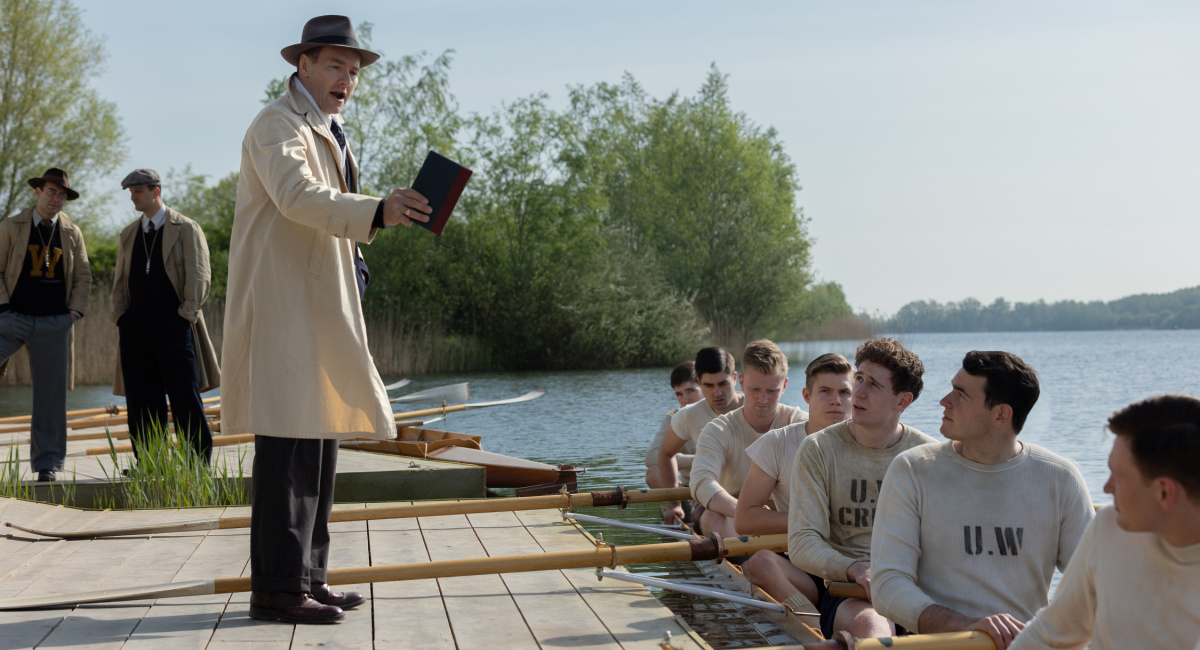
(L to R) James Wolk star as Coach Bolles, Dominic Tighe as Coach Brown and Joel Edgerton as Coach Al Ulbrickson in director George Clooney’s 'The Boys in the Boat,' an Amazon MGM Studios film. Photo credit: Laurie Sparham. © 2023 Metro-Goldwyn-Mayer Pictures Inc. All Rights Reserved.
MF: Joel, can you talk about your approach to playing Al Ulbrickson and did you draw any inspiration from coaches, teachers or mentors that you’ve had in your life?
Joel Edgerton: So many coaches I had in my life that I watch on television, and with a certain naivety, you look at them and go, why are you even doing this? You look like you have no joy in your life whatsoever. You just look so bitter and close to a heart attack. I think it's because of how much they care, and they will show their enjoyment usually when there's a big trophy around. But more than anything, those relationships remind me of certain father-son dynamics. Every coach I ever had, created that energy to me where I was like, I want to impress you because I feel like you're not impressed by what I was doing. Probably because I was a terrible athlete, so I was really excited about playing that rather than some overly warm, fuzzy coach who probably never wins, because he's like, it doesn't matter, you're doing great.
Related Article: Movie Review: 'The Boys in the Boat'
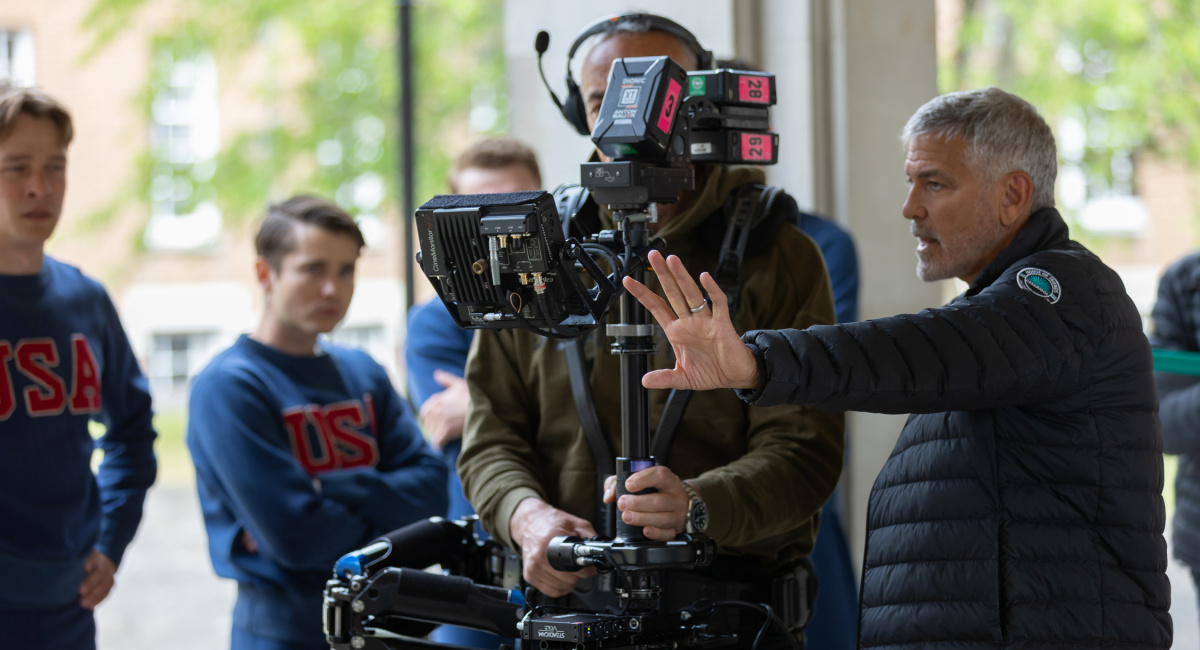
Director George Clooney on the set of his film 'The Boys in the Boat,' an Amazon MGM Studios film. Photo credit: Laurie Sparham. © 2023 Metro-Goldwyn-Mayer Pictures Inc. All Rights Reserved.
MF: George, can you talk about the challenges of shooting on the water and creating the rowing sequences?
GC: Yeah, they were fun to do. Listen, it's hard to shoot on water. Anybody who has any understanding of shooting would understand why water is so tricky. The wind blows and all the boats ended up in 15 different directions, and you're trying to get all these young men who'd never rowed before to row and look good, and then they're rowing against a bunch of people who really know what they're doing. There's historical accuracy, so you must have the boats in the right order all the time. There's constantly a battle of like, hang on a minute, you can't be ahead of Hungary at this point. It was all very complicated, but we just had to be prepared, that's all. If you're prepared, you can kind of cover almost anything.
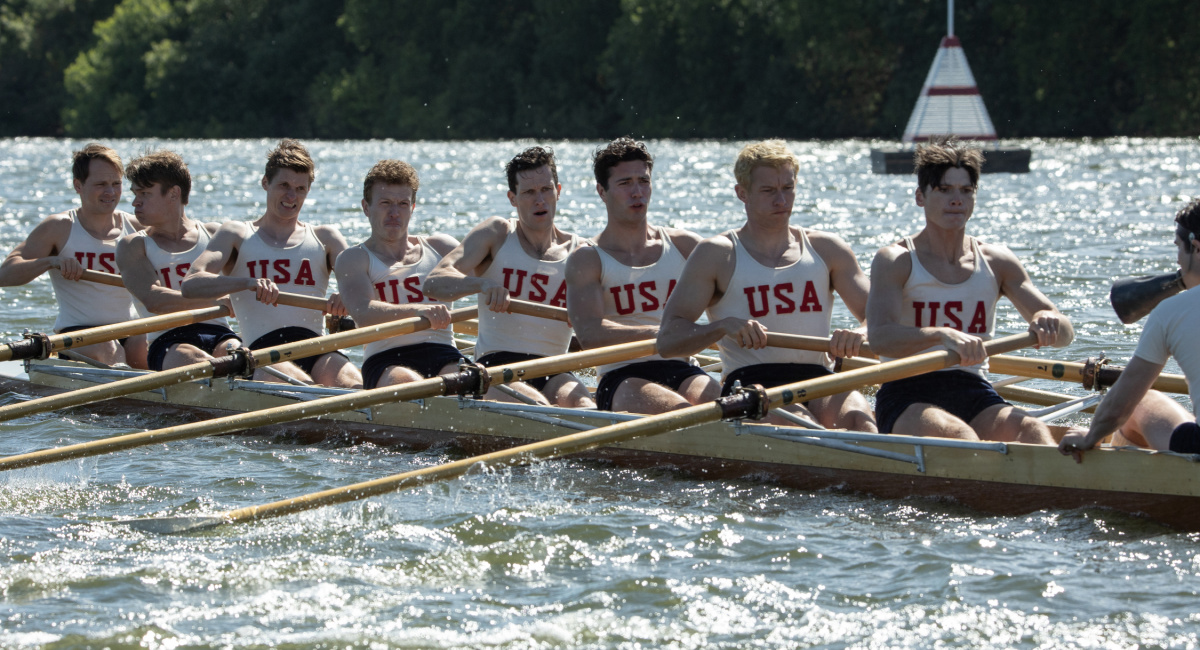
(L to R) Sam Strike stars as Roger Morris, Thomas Elms as Chuck Day, Joel Phillimore as Gordy Adam, Tom Varey as Johnny White, Wil Coban as Jim McMillin, Bruce Herbelin-Earle as Shorty Hunt, Callum Turner as Joe Rantz, Jack Mulhern as Don Hume and Luke Slattery as Bobby Moch in director George Clooney’s 'The Boys in the Boat,' an Amazon MGM Studios film. Photo credit: Laurie Sparham. © 2023 Metro-Goldwyn-Mayer Pictures Inc. All Rights Reserved.
MF: What type of preparation was needed to execute those shots?
GC: Well, everything. I mean, we had photographs of the races at each quarter, so we would know where they were, where they're staying. We had radio broadcasts of some of them, but then you must spend the days and nights figuring out, okay, we were shooting one reservoir that was shallow because of the boats, you couldn't anchor them, so we would have scuba divers underwater holding the boats steady before they started just to get things off. You just had to have that kind of thing.
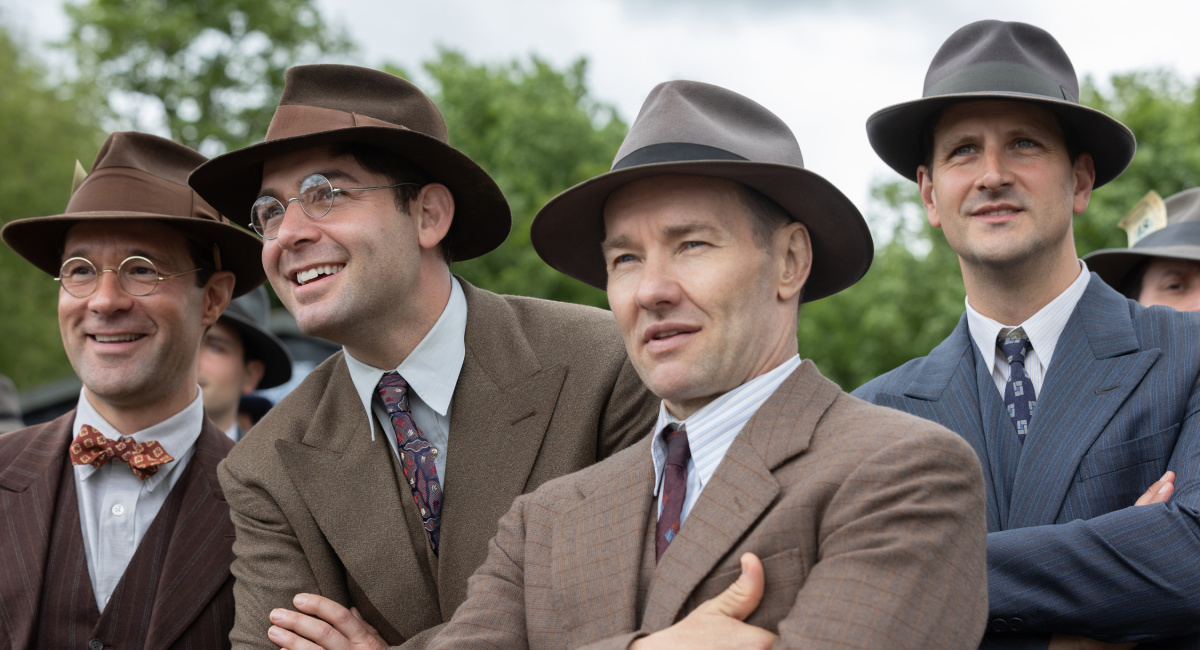
(L to R) Chris Diamantopoulos stars as Royal Brougham, James Wolk as Coach Bolles, and Joel Edgerton as Al Ulbrickson in director George Clooney’s 'The Boys in the Boat,' an Amazon MGM Studios film. Photo credit: Laurie Sparham. © 2023 Metro-Goldwyn-Mayer Pictures Inc. All Rights Reserved.
MF: Joel, in addition to being an actor, you're also a director. In addition to being a director, Mr. Clooney is also an actor. What was it like for you working with him and specifically what did you learn about filmmaking from watching the way that George makes movies?
JE: I'm sure George has felt this too, but the sacred awesomeness of being an actor and deciding at some point you're going to direct, or when you do, is that you've had a front row seat watching so many different directors conduct themselves over a month’s long shoot, and you get to learn and kind of observe. You see someone do a certain thing, even if it's like the way they run a rehearsal or I love learning about conduct as well, just going, oh, that's learning gratitude from a director. The way they appreciate a crew. Anyway, I mean, I think George obviously has understood all that stuff, plus this incredible ability to tell a story well. I've been a huge fan of the movies he's made since the very beginning, and it was great to pick his brain about some of the creative resourcefulness that he put into some of his earlier films too, kind of in-camera tricks, which are just so awesome to hear about. Stuff that you don't get to know unless you're sort of sitting side-by-side having a chat. I had a great time.
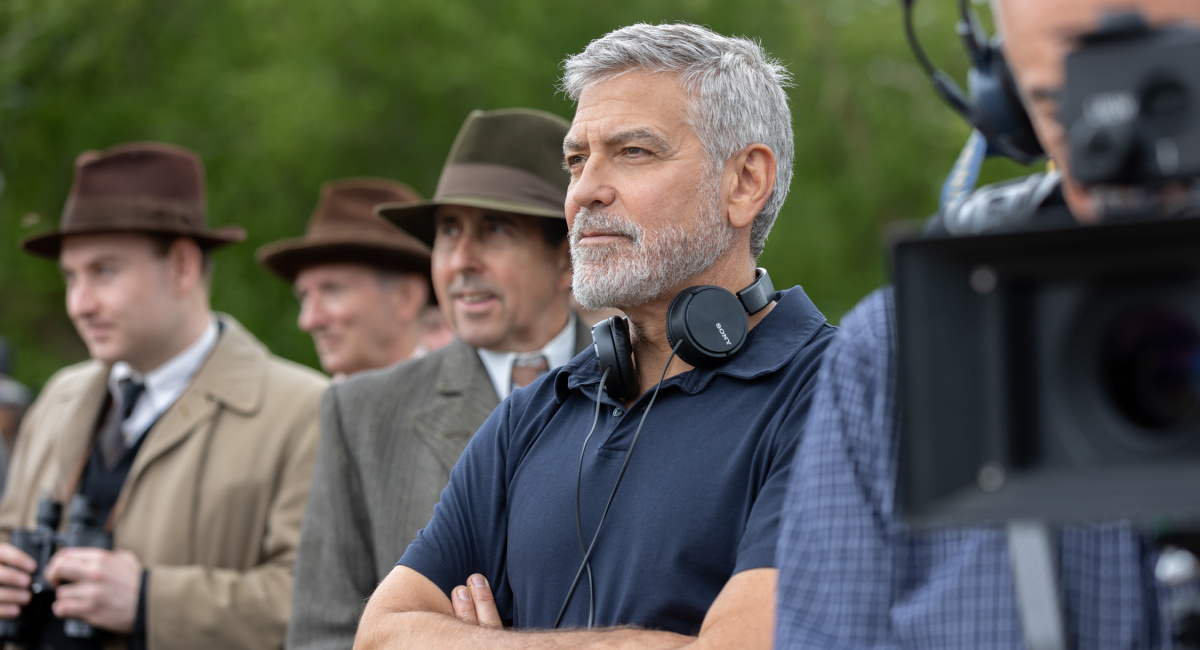
Director George Clooney on the set of his film 'The Boys in the Boat,' an Amazon MGM Studios film. Photo credit: Laurie Sparham. © 2023 Metro-Goldwyn-Mayer Pictures Inc. All Rights Reserved.
MF: George, as a director that is also an actor, what is it like for you directing an actor who is also a director?
GC: I have to say, when you work with an actor who has directed and has directed beautifully, what you get with that is, you get all the shortcuts, he understands we're losing the light and we've got to get this. He’ll say, “If I walk over from here to here, I can shorten that issue,” and you go, that would really be nice if you could do that. For us, I think it was a real shorthand in that way, because I could just say, well, we're trying to do this, and he’d go, “Got it”. It's a big deal. It makes a big difference when you work with an actor who also happens to be a wonderful filmmaker.
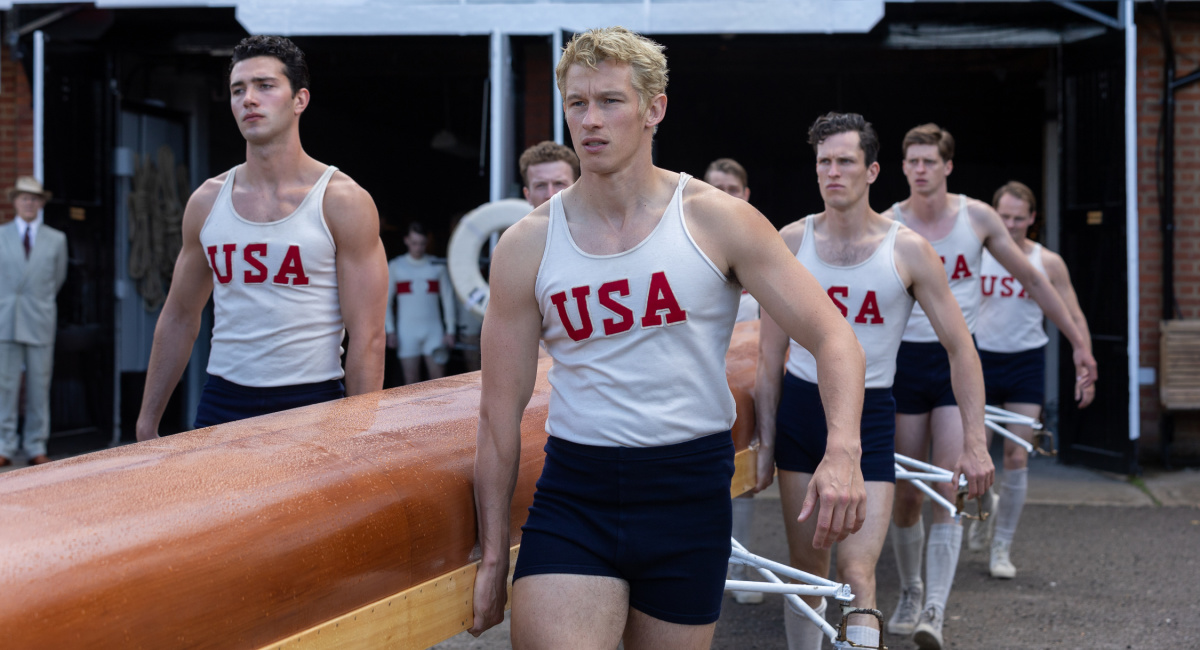
(L to R) Bruce Herbelin-Earle stars as Shorty Hunt, Callum Turner as Joe Rantz, and Wil Coban as Jim McMillan in director George Clooney’s 'The Boys in the Boat,' an Amazon MGM Studios film. Photo credit: Laurie Sparham. © 2023 Metro-Goldwyn-Mayer Pictures Inc. All Rights Reserved.
MF: Finally, George, can you talk about casting the actors that play the rowing team and what were you looking for from them in terms of emotionality and physicality for these roles?
GC: Well, physicality was important because these guys are all giants. That was one of the parts of it that was important. But then you must have actors. We did that stupid thing where we asked them all if they were athletic, because I said, “If you're not athletic, we won't be able to keep you on.” But every actor would lie about that. We lie about everything on our resumes always. Do you juggle? Certainly, I juggle. I juggle a lot of balls. But they ended up training hard and doing a spectacular job of rowing.
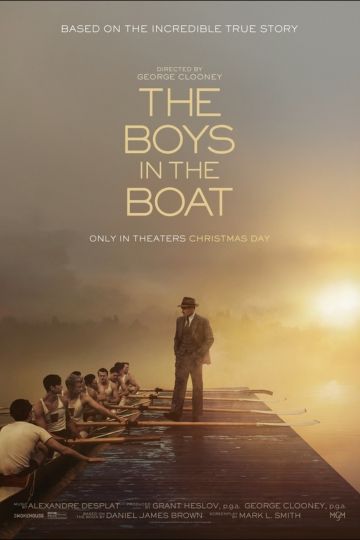
The Boys in the Boat
What is the plot of ‘The Boys in the Boat’?
The non-fiction novel describes the University of Washington crew that represented the United States in the men's eight at the 1936 Summer Olympic games in Berlin, including the coaches, boatbuilder George Pocock (Peter Guinness), and the working-class student athletes involved, especially rower Joe Rantz (Callum Turner), who was effectively abandoned by his family and left to fend for himself at a young age.
Who is in the cast of ‘The Boys in the Boat’?
- Callum Turner as Joe Rantz
- Joel Edgerton as Al Ulbrickson
- Jack Mulhern as Don Hume
- Sam Strike as Roger Morris
- Peter Guinness as George Pocock
- Luke Slattery as Bobby Moch
- Thomas Elms as Chuck Day
- Tom Varey as Johnny White
- Bruce Herbelin-Earle as Shorty Hunt
- Wil Coban as Jim McMillin
- Hadley Robinson as Joyce Simdars
- Courtney Henggeler as Hazel Ulbrickson
- James Wolk as Tom Bolles
- Chris Diamantopoulos as Royal Brougham
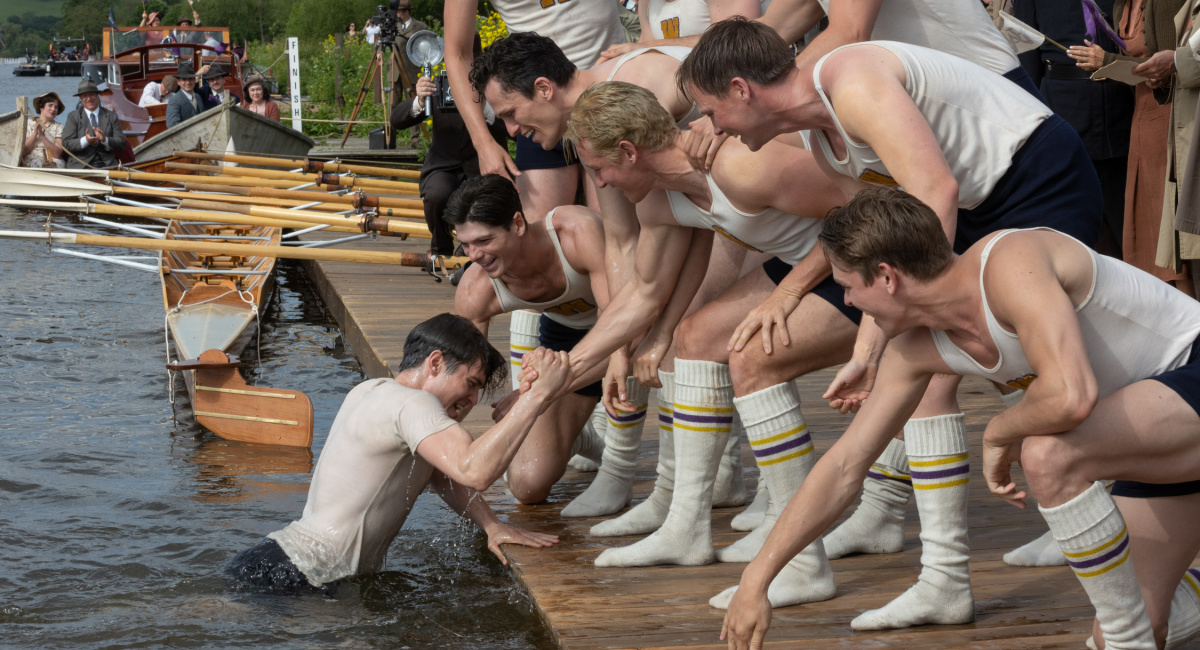
(L to R) Luke Slattery stars as Bobby Moch, Jack Mulhern as Don Hume, Wil Coban as Jim McMillin, Tom Varey as Johnny White, Callum Turner as Joe Rantz, Sam Strike as Roger Morris and Thomas Elms as Chuck Day in director George Clooney’s 'The Boys in the Boat,' an Amazon MGM Studios film. Photo credit: Laurie Sparham. © 2023 Metro-Goldwyn-Mayer Pictures Inc. All Rights Reserved.
Other George Clooney Movies:
- 'Confessions of a Dangerous Mind' (2002)
- 'Good Night, and Good Luck.' (2005)
- 'Leatherheads' (2008)
- 'The Ides of March' (2011)
- 'The Monuments Men' (2014)
- 'Suburbicon' (2017)
- 'The Midnight Sky' (2020)
- 'The Tender Bar' (2021)
Buy Tickets: 'The Boys in the Boat' Movie Showtimes
Buy George Clooney Movies on Amazon












